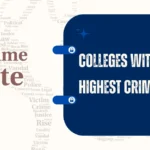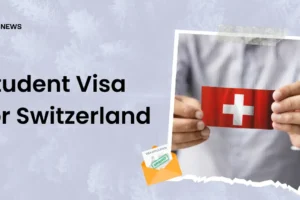Are you searching for information on Student Visa for Austria? then you are on the right place. Austria is one of the very few countries in the world that has compelling universities for international students. This country lies in the center of Europe and its residents have easy access to neighboring countries by rail, road, or air.
Table of Contents
All around the world, universities and other higher education institutions enjoy great esteem. With a strong industrial basis and a high employment rate, graduates have a wide range of options.
The oldest and most well-known Austrian university city is Vienna, but you can also study in Graz, Innsbruck, Linz, or Salzburg, all of which are renowned for their stunning architecture and diverse cultural offerings.
Key Takeaways:
- Students require a study visa in Austria if they are from a country outside of the Schengen region.
- There are two types of Student visa for Austria which are short-term or visa C and long-term or visa D.
- The documents required for a Student visa for Austria are a valid passport, application form, travel insurance, and proof of accommodation among many others.
- The process of application starts with steps such as finding a suitable university in Austria, filling out the application form, and gathering all required documents.
- Students will have to register at the nearest office for a residence permit once they arrive in Austria.
- The processing time for a student visa in Austria is about two to four weeks.
- Students from a third-world country cannot work in Austria during the duration of the course.
- Additionally, students can extend their student visa in Austria if they have a legitimate reason and a decent academic record.
- The cost of a student visa for Austria is about 120 euros for visa D and 80 euros for visa C.
Who needs a student visa to study in Austria?
Most students require a student visa to study in Austria. However, students from certain regions are exceptions. They are:
- If the student is a resident of the EU/EEA or lives in a country within the Schengen Area.
- If the student is from any country which has a visa agreement with Austria.
Recall that students who are permitted entry into Austria without a visa need to apply at the local registration office for a “Certificate of Registration.” This is only relevant if you intend to stay for your education for longer than ninety days.
Types of student visa for Austria:
There are two types of Austria student visas, one is a short-term visa and the other is a long-term visa. Applicants should apply for the visa which specially suits the length of their duration of course.
1. Short-term or Visa C:
With this short-term visa, you can spend up to three months studying in Austria.
2. Long-term or Visa D:
You can convert this long-term visa into a student resident permit once it has been in effect for up to six months. If you intend to pursue post-secondary education or extended study in Austria, you will require this kind of visa.
What are the documents required for a Student Visa for Austria?
For students to be able to apply for a student visa to Austria, students should submit the following documents:
1. A valid passport:
Students have to ensure that the passport submitted has two empty pages and was issued during the last decade. Moreover, the passport should not expire during the stay.
2. Visa application form:
Students have to print out a visa application form and fill it out correctly. They should especially ensure that the form is filled with the right data and signed correctly.
3. Travel insurance:
To receive a student visa for Austria, students should have Schengen travel insurance. The insurance must duly cover the cost of any type of emergency upto an amount of €30,000.
4. Passport size photographs:
Students should include a recent picture of themselves along with their application. They should make sure they follow the Schengen visa pictures guidelines.
5. Proof of accommodation:
Students have to include proof of their accommodation along with other documents. This could either show accommodation within campus housing, a student dorm, or a rent agreement.
6. Travel itinerary:
This could include correct flight dates, flight numbers, and departure dates.
7. Proof of financial status:
Students have to prove that they are capable of financing themselves during their stay for the duration of the program. The average cost varies depending on various things. For example:
- Students below 24 years old need about 552.53 euros per month.
- Students who are 24 years and older need 1,000.48 euros every month.
- For couples, it could be about 1,578.36 euros per month.
- And every child needs about 37 euros per month for their survival.
8. Proof of admission:
Students should provide a letter of confirmation from the Austrian University they have been selected into that proves their status as a student.
9. Proof of paid tuition fee:
Students should provide a copy of the receipt or bank statement that the university fee has been paid.
What is the process of application for a Student Visa for Austria?
When students apply for a student visa, they need to follow the steps below:
Step 1: Find a suitable university in Austria
Students must ensure that the university they have chosen best fits their academic needs. Before applying for a student visa, they must verify the acceptance.
Before the deadlines, which are February 5th for the summer semester and September 5th for the winter semester, students are urged to apply.
Some colleges also require applicants to take an acceptance exam. To get admitted to the university, they need to pass the exam. Because of this, there may be an early application deadline for some study programs.
Step 2: Filling the application form
The application form must be downloaded, printed, and completed by students before they can submit their application. This is the second most crucial stage.
Step 3: Gathering all documents
Students have to ensure that all required documents are in order before submission of the application. The documents either have to be in English or German.
Step 4: Making an appointment
Students will have to schedule an appointment to submit their application. An embassy or consulate, or another representative body within that nation, is responsible for issuing visas. They can apply to determine which local office to schedule an appointment with.
Step 5: Preparing for an interview
Students will probably be required to sit down for an interview at the Embassy. During the process, students will be asked questions regarding the reason for studying in Austria and possible plans.
What to do after arriving in Austria?
Upon arrival in Austria, you must register at the registration office located in your accommodation for the duration of your stay. You can apply for a student residence permit if you currently hold a D student visa.
You can carry on studying for as long as necessary with the residence permit, and if you decide to extend it, you won’t need to apply for an entrance visa.
You have to complete module 1 of the integration agreement in order to be eligible for this permission. You must prove in Module 1 that you know the fundamentals of the German language.
What is the processing time for a student visa for Austria?
The average processing period for an Austrian student visa is two to four weeks. The embassy will notify you when your visa is ready, so make sure your contact information is current.
Can students work in Austria with a student visa?
You must apply for a special C or D student visa to obtain a work permit if you wish to work while you are a student. Students from third countries are not allowed to work while they are enrolled in classes without this visa.
If you have been granted a work visa, your weekly work hours may range from 10 to 20 hours, contingent upon the terms of your visa. Remember that the Public Employment Service (AMS) is where your company must apply for your work permit.
Can students extend their student visas to Austria?
Yes. Students can apply for a student visa extension if they have legitimate reasons for wanting an extension and it they demonstrate great progress in their study program.
Students can also apply for a resident permit which allows them to continue their studies in Austria.
How much bank balance is required for an Austrian student visa?
For full-time students, an Austrian student visa requires a minimum bank balance of €7,357.92 for those under 24 years old and €13,323.12 for those over 24.
In the event that the monthly expense of accommodations surpasses €372.91, you will need to supply more money to make up the difference.
You can present documentation of scholarships or grants, bank deposits or savings accounts in your name, or formal statements of financial support as evidence that you have enough money to study in Austria.
There are tons of cheap universities in Austria for international students that could relatively cost much cheaper in terms of tuition costs.
What is the cost of a student visa for Austria?
Depending on the kind of visa you need and your place of origin, there are different application fees for student visas in Austria. The following are the standard fees for Austria’s primary categories of student visas:
- Visa D: €120
- Visa C: €80
For additional services, including fast processing or document delivery by courier, there can be additional costs.
What should you do if your application for an Austria student visa is rejected?
You can contact the embassy or consulate to inquire for further information if your application for a student visa to Austria is denied. Determining whether you can appeal or reapply will be made easier if you comprehend the grounds for the denial:
1. Appealing the decision:
To get your student visa application denied, you must send a formal appeal to the embassy or consulate that made the decision. Your appeal should include all relevant supporting documentation and a clear explanation of why the verdict was unjust or erroneous. Typically, appeals must be submitted within four weeks of the denial.
2. Resubmitting a student visa application:
You have the option to reapply for your student visa if your previous application was denied due to incomplete or missing documentation. For each new application, the fee must be paid afresh.
Reapplying is frequently a faster option than appealing the decision if you’re short on time.
Frequently Asked Questions:
1. Is it expensive to study in Austria?
For overseas students, Austria offers affordable education fees. They should budget about 1,452 euros for public university expenses, with student union membership costing 20 euros every term.
2. Is it a good idea to study in Austria?
Austria is a great option for overseas students who want to continue their education. To begin with, students will not have any trouble obtaining courses taught in either English or their native language because the nation is multilingual and recognizes German, Austrian, and English as its three official languages.
3. Can international students work in Austria while studying?
In Austria, all foreign students are permitted to work while they are studying abroad. However, your country and immigration status will determine how many hours you can work and what permits you need. Without a permit, students from the EU, EEA, and Switzerland are permitted to work in Austria.
4. Do people in Austria speak in English?
German is the language that most Austrians speak, but Austro-Bavarian is also spoken by a sizeable section of the populace. Furthermore, approximately 75% of Austrians are fluent in English. Business translators have a lot of opportunities to earn a solid career in this mix of languages.
5. Which is the best course in Austria?
Some of the most popular courses in Austria are:
– Bachelor degrees
– Bachelors of Science
– Bachelors of Arts
– Bachelors of Business Administration
Conclusion:
Around the world, Austria is a well-liked location for international students. It is home to some of Europe’s top public universities and has reasonably priced tuition.
Additionally, it provides excellent employment opportunities for students who choose to stay in Austria after completing their studies.
Even though the Austrian visa application process moves somewhat quickly, it’s still advisable to allow plenty of time.






















Add Comment